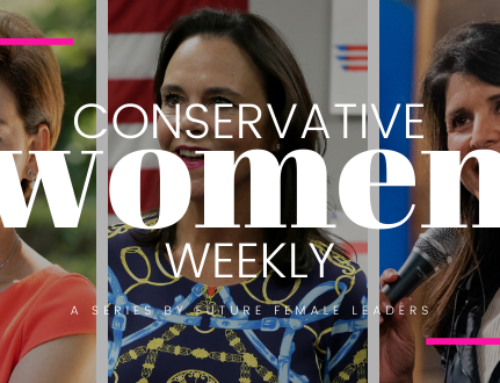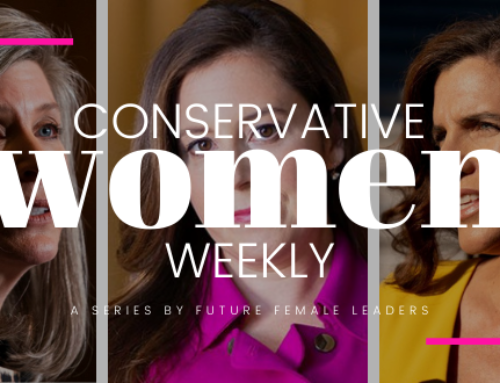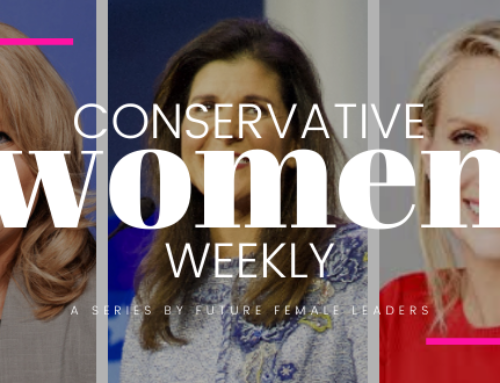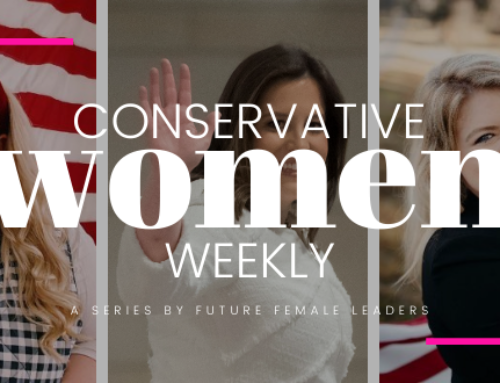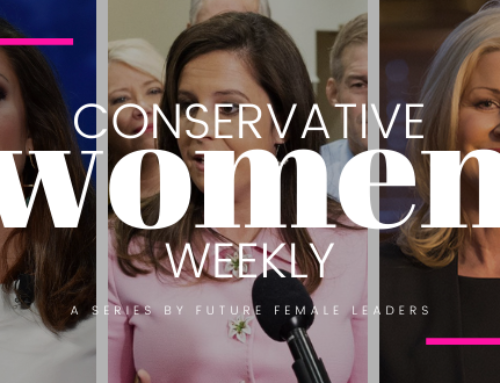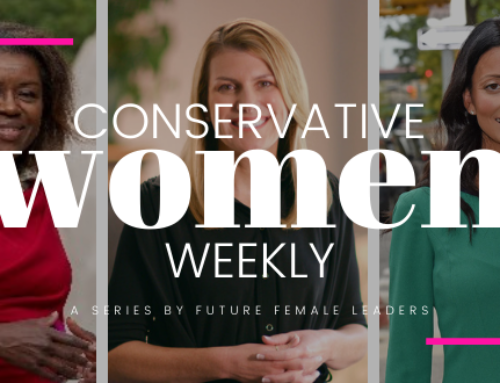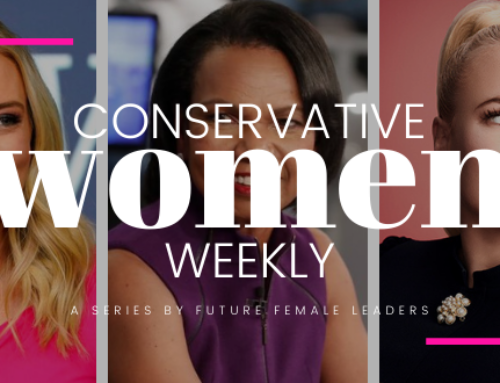Utah has a history of women being involved in the political process. Women’s suffrage was first granted in 1870. While Wyoming was the first state which granted the right for women to vote, Utah held two elections before Wyoming, where women were first to cast ballots in this nation.
After Utah became a state in 1896, Martha Hughes Cannon became the first female State Senator elected in the United States, an election where she defeated her husband.
Now, the Utah Legislature comprises of 75 members in the Utah House and 29 members in the Utah Senate. There are 20 women in the House and 6 in the Senate.
There are a total 10 Republican women in the legislature. One of these women, Representative Candice Pierucci, is now the youngest legislator in the state and was just elected two months ago after the previous representative resigned from his post.
The minimum age to be a legislator in the state of Utah is 25 years old. Rep. Pierucci is 27.
How did you get involved with politics?
I grew up in a home where we chatted politics around the dinner table. In high school, I really enjoyed my AP Government course and American Women’s History (I used my fun credit to take an extra history class), while a senior in high school I actually had the opportunity to intern for my state representative up at the State Capitol—I worked to make my credits and schedule work with the session. I absolutely fell in love with the process and the political world—the ability to actually effect change and make a difference in one’s community and state. After graduating high school, I attended Utah Valley University and interned as a freshman up at the State Capitol the following session, and then went out to Washington DC to intern for Senator Mike Lee. I loved my time in DC and spent my weekends at Smithsonians, Mount Vernon, Monticello, etc. While I was out in DC, I canvassed in Rhode Island for then presidential candidate Mitt Romney.
Once I returned back from DC, I continued working on campaigns and became the President of UVU’s College Republicans and later the Vice Chair of the Utah Federation of College Republicans. Like many, I did the Leadership Institute training and was involved with AIPAC, attending their Sabans and Policy Conference. I was a research assistant and co-author for the Utah Women Leadership Project and a lot of my research was focused on Utah women in politics, business, and nonprofits. I graduated with my degree in Political Science and went on to work for Congressman Chris Stewart as Director of Community Relations. I have my Master’s in Public Administration and finished working at the Sutherland Institute (a conservative think tank) this year.
What made you decide to run for the Utah House of Representatives? Did you always wanted to run for office, or did it take some time to think about?
I had thought that one day I might run for the state legislature, but certainly didn’t anticipate it being so soon. When Rep. John Knotwell resigned, both Andy and I felt like the timing was right for our family—I grew up in District 52, I went to elementary, middle and high school here and felt like I could represent our area well. After working in a congressional office, I always admired the state level of government in its ability to actually get things done.
Have you been criticized for you involvement with politics as a young person and a woman? If so, tell us about your experience(s).
I feel like overall the individuals I have encountered along my journey have been encouraging and quite frankly, haven’t cared about my age or that I’m a woman. That said, several people have expressed either surprise, concern, or outright disdain at me serving as a young mother. For the most part, I’ve been able to work through those concerns by letting people know I have the full support of my family, absolutely love and adore my little boy and that he (my baby) is one of the reasons I decided to run—what better way to make a difference in your community for your child and teach them the importance of civic engagement than to serve? There will always be people who you can’t win over, but on the whole, if you’re confident and comfortable with your decisions, others will respect that, or at the very least drop the subject if you’ve demonstrated you are capable and engaged.
In regard to my age, of course people have paused when I introduce people as representative and not a staffer, or intern for that matter. That said, once I demonstrate my experience, willingness to listen, genuine concern, and hard work, most people don’t ever and haven’t brought up my age as an issue. There have been plenty of jokes made, but very few are done so in a mean-spirit, most people are excited about what this means for our party and the millennial generation.
What kind of a voice do you think you will bring to the Utah Legislature as a young conservative woman?
First and foremost, I am here to represent my district and be a strong voice for Herriman, Riverton, and South Jordan. I am a believer in civil dialogue, relationship-building and the principles of compassionate conservative that Arthur Brooks discusses in his book, The Compassionate Heart and Love Your Enemies. I value and respect the service of those who have and currently serve in the legislature and hope to bring a fresh perspective—the perspective of someone who is raising a young family, working to pay the bills, and create a successful life, home and community—the place that a lot of Utahns are in right now.
What are some of your plans as a legislator? What kind of legislation do you plan to sponsor and support?
I plan to be accessible, encourage locally driven solutions and partnership building. Our area has experience rapid growth, so transportation and infrastructure are huge for our area and I’ll be working with our cities to meet those needs. In addition, I plan to support and run legislation in the future that fosters more innovation in education and family friendly policies. Religious liberty, pro-life policies, etc. are all important to me.
You are a legislator and resigned from a conservative organization (the Sutherland Institute), but you are also a wife and a mother. How do you balance your career and your family?
I took an unpaid leave of absence [from the Sutherland Institute) to run for office knowing that if I won, I would need to resign from my position. I plan to continue working part-time while in the legislature and am currently applying for adjunct positions. I am a mom of an adorable baby boy and am grateful to be married to my best friend. In terms of balance, my husband is incredibly supportive of me, my career and my legislative service—we have approached this race, our careers, family, etc. as a team. In terms of balance, I have always been a great multi-tasker, but I would say prioritization and organization are critical. I think it’s also important to note that I don’t think it’s ever quite possible to achieve a perfect balance, but you can work hard to achieve something that works for you and your family.
Who is your inspiration? Is there anyone you look up to?
In fifth grade, I read biographies on Eleanor Roosevelt and Amelia Earhart, two phenomenal American women who were courageous and willing to step out and be the “firsts” in so many ways. Margaret Thatcher is another leader I look up to. Susan B. Anthony is phenomenal and someone I have also always looked up to. I have a picture of her and Elizabeth Cady Stanton hanging up on my wall. I’m also a big fan of John and Abigail Adams and George Washington.
Former Utah House Speaker Becky Lockhart was the first female elected official I had the chance to meet, I believe I was in 8th or 9th grade—I visited the Capitol on a field trip and she came to our small group of students and said, “some of you are going to be legislators some day” and that we were the state and country’s future leaders. I later interned as a legislative assistant while she was Speaker of the House, she has always been a great example for me.
I really like Nikki Haley’s and Carly Fiorina’s approaches to campaigning and public service.
Any advice to young conservative women who want to run for office some day?
I’d say, get all the experience you can—if you’re still in school do as many internships as you can! My degree was a piece of paper I needed to meet requirements for my jobs, but it was always my experience and relationships that got my foot in the door. Be engaged in your communities, find issues you’re passionate about and work with leaders in your area to effect change. Work hard, really hard—give school, your job, your run, all you’ve got. Surround yourself with people who work hard, believe in you and most importantly, believe in yourself—we are our worst critics.
Frances F
CABINET


